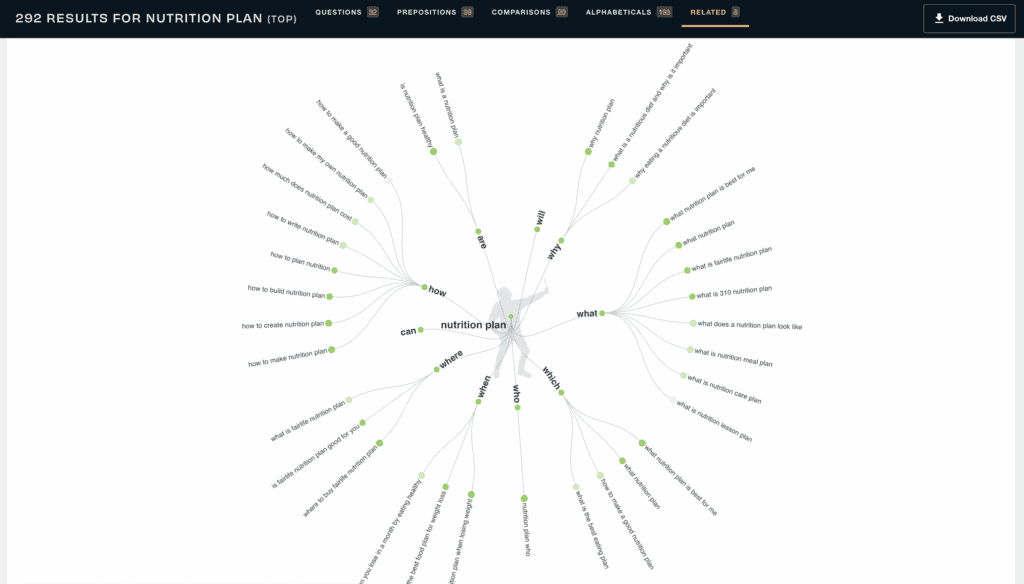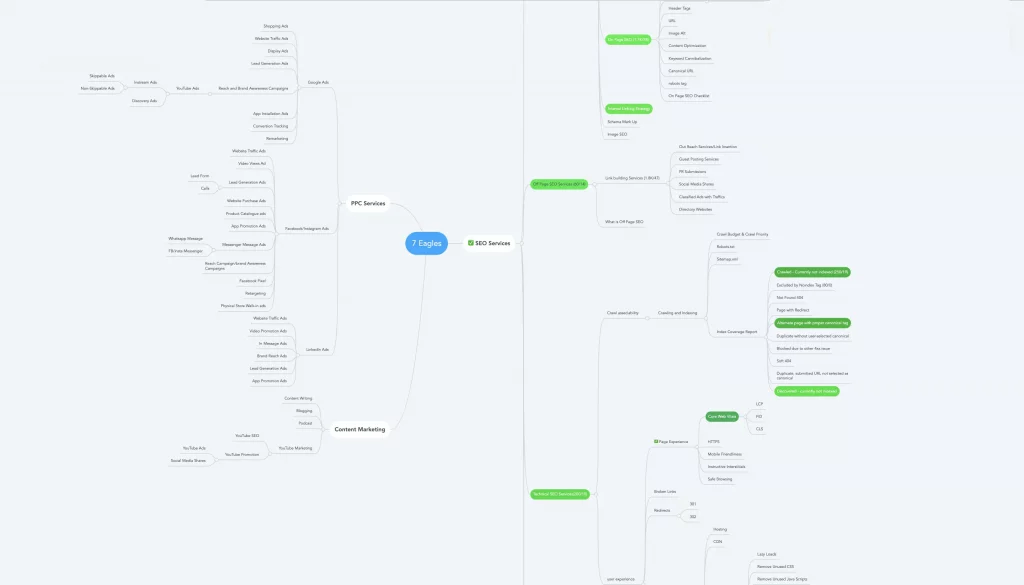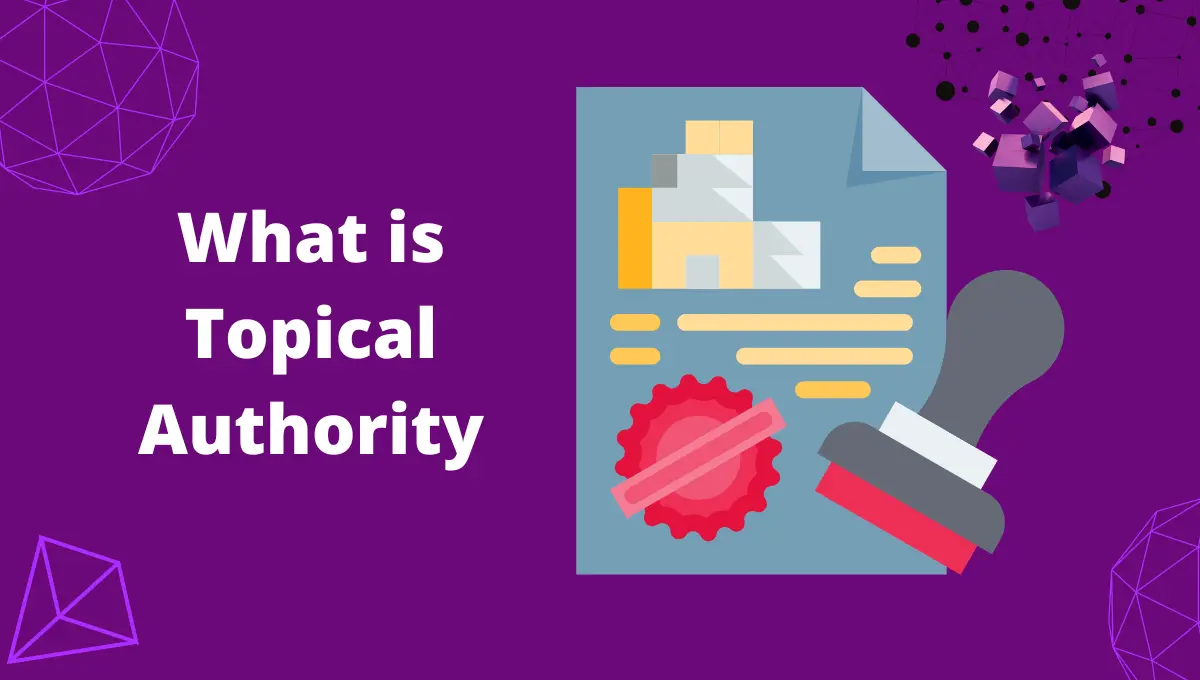Thinking of ranking every piece of content on your website, then it’s time to implement topical authority in your website. Google currently looks for authority on a particular topic to rank them, and this authority is not backlinks.
“Authority” is a common term every SEO expert comes across, but many fail to understand what authority means. It is a measurement of both trust and credibility.
Let’s assume practically will you buy a car tire in a supermarket, even if they have stocks? You don’t, right, but why? Tire shops or car detailing studios are preferred.
The answer is simple; tire shops or car detailing studios have more authority in selling a car than a supermarket.
In the same way, Google doesn’t promote a piece of content on a website if it’s the only content around its topic or niche. This builds trust and expertise.
In this article, you will learn each concept of topical authority in SEO, their benefits, and how to build them.
What Is Topical Authority?
A topical authority is described as the depth of expertise around a topic. It is formed when content is helpful to users, descriptive, informative, and covers every subset or cluster topic.
Major SEO experts believe authority or trustworthiness is built by the number of domains referring to them, i.e., backlinks. But, topical authority defers completely.
Once a website holds authority on a topic; it would be the go-to option for both search engines and users. I prefer HubSpot for any social media marketing content and Google search central for SEO content.
The goal of building topical authority is to ensure that search engines understand the topic of a website (as it covers all cluster topics), thus improving its chance of ranking for keywords related to that topic.
If you write content on “Technical SEO,” strive to rank them. Search engines will never consider your website an authoritative and expert in “Technical SEO.” Then how to form authority around “Technical SEO”?
To rank “technical SEO,” your website should have all the cluster web pages or sub-topics around “technical SEO” as follows:
- Technical SEO checklists
- Technical SEO audit
- What are the Technical SEO issues?
- Why is technical SEO important?
- How to conduct a technical SEO audit?
- Are technical and onsite SEO the same?
A topical authority is built as your website has all pieces of content around a topic. Here is an example of how topical authority influence ranking in SERP.
In the below image, you can see SERP for the keyword “Best Protein Powder,” despite Live Science and Muscle Blaze holding low DA/DR (as per Moz and Ahrefs) compared to Healthline, they rank in the first and the second positions in the SERP.
Because Healthline has only a few web pages on “Protein Powder” compared to Live Science and Muscle Blaze, this is how your website gets influenced in the SERP if it has built authority over a topic.

Why Is Building Topical Authority or Relevance Important in SEO?
In marketing, successful sales person is one who has expert knowledge and promote the product or service with passion.
They have high confidence and answer all the relevant questions asked by the customers, solve your problems, speak all aspects of the features, etc.
In the same way, when it comes to search engine ranking, Google looks for authority over cluster of topic, and consider them as expertise in that part topical relevancy that builds an authority for both search engines and users.
Buyers are converted by content that ranks on search engine results pages. The topical relevance of your content proves to Google that you are knowledgeable and trustworthy. The most credible sources of content are shown to Google users, as we know.
Using content, you can prove to Google on the relevancy of the web page (on of the Google’s Basic Algorithm). The content should cover related topics, include keywords, and be easy to understand for the user and the search engine.
E-A-T and Topical Authority:
Since the Medic update from Google in 2018, E-A-T algorithm becomes an important factor in ranking of any web page.
The medic update helps the content created by the expert in the relevant niche:
- Expertise of the author
- Authority of the author
- Authority of the referring domain
- Author of the referring domain
The medic update was the first time expertise, authority, and trustworthiness worked together based on content and the content owner.
For example, when written by a healthcare specialist, health content got high credibility or an expert view.
Considering the amount of content being published on the web, it makes sense to uphold this standard across the board. Keep your website competitive by posting only well-written, well-informed content.
How to Build Topical Authority:
Topical authority is one of the biggest Google ranking factors, and building your website with topical relevance can surpass your competition. Similarly, you should be clear that your web pages should be free of keyword cannibalization.
One basic step we usually adopt in our SEO practices is researching and building a website with high topical relevance.
Here are a few steps to help you build a topical authority website.
- Holistic Keyword Research around a seed keyword or topic
- Segregating the pillar and cluster topics
- Building Site architecture with a help of mind mapping to assemble all the cluster topics that could avoid keyword cannibalization
- Publishing high-quality, relevant, and helpful content that meets the search intent
- Building strong internal links
Holistic Keyword Research around a Seed Keyword or Topic:
Keyword research is the first step when it comes to build topical authority in your website. Once you discover the seed topic or keyword, you should get all search queries around the keyword.
We suggest you to check our article on best keyword research tool, where you can find various tools that help you get long tail keywords, latent semantic indexing (LSI) keyword, google autofill keywords, etc.
We advise you to check with keyword ideas using Answer the public tool.

When you place a keyword on which you need complete cluster ideas, you get various options that can potential make many user to invade to the website and become authoritative in that topic.
The other ways of collecting more cluster topic ideas are from Google search console, Google Keyword autosuggestion, etc.
Segregating & Mind Mapping for Site Architecture:
The next step in building a topical authority post keyword research is segregating the pillar topics and it’s related (cluster) topics.
Then, you should form a mind mapping that later forms as website architecture.

This gives a clear idea on pillar and cluster pages and covers complete area of information around a seed topic. At the same time, you can avoid keyword cannibalization and linking appropriate internal web pages.
Publish High-Quality Content:
Compelling content that is descriptive and meets the user’s intent gets ranked in search engine and makes maximum conversions.
Google recently rolled out helpful content update, it focuses on ranking the content that are helpful and fulfil the intent of the user.
A high-quality, helpful content is the next criteria for making a topical authority besides a holistic keyword research and building actionable site architecture.
Build Strong Internal Links:
Internal links are an important factor that helps to increase crawl accessibility and to increase authority from internal web pages.
Since, internal links can form a silo structuring between the relevant and cluster topic around the seed topic. Finally, this strategy can help in creating authority around a topic or keyword.
Brand marketing revolves around establishing the brand and promoting its products to create a strong brand identity. Growth marketing, on the other hand, revolves around experimenting with different marketing strategies and implementing them to get the maximum results through them.
Creating highly personalized content in their marketing strategies has been shown to lower acquisition costs, increase revenue, and improve the efficiency of marketing for the brands. Growth marketing also generates greater rates of customer retention and satisfaction.
Growth marketing helps businesses grow quality and relevant customer base through data-driven marketing strategies. It creates brand awareness and travels with the customers throughout their journey with the brand.













